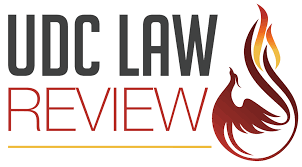
Article Title
There Is No Justice When Low and Modest-Income D.C. Residents Are Forced To Represent Themselves in Civil Cases
Abstract
After spending more than twenty years as a white-collar criminal defense lawyer at DLA Piper and prior to that serving as a federal prosecutor, law professor, and law school dean, I had the opportunity to help develop and then share responsibility for directing the non-profit D.C. Affordable Law Firm (“DCALF”). 135 I learned from this experience that lawyers are rarely available for most of the low- and modest income District of Columbia (“D.C.”) residents who find themselves embroiled in civil matters in D.C. Superior Court on matters greatly impacting their lives. They become, as a result, self-represented litigants (“SRLs”) who must contend with a complicated legal system that was designed on the assumption—now proven to be unfounded—that lawyers would be representing all parties in all proceedings. I see the value, at least in principle, in having an adversary system grounded on seeking truth through expansive pretrial discovery, restrictions on hearsay, and the right to cross-examine opposing parties and their witnesses. However, it is not a sensible model when lawyers are not available to navigate that process on behalf of both parties or, even worse, only one side has representation. The system creates an anomalous situation, because lawyers have monopoly control over the representation of parties under D.C.’s rules even though they are available for so few litigants. Equally concerning, there is far too much reliance on overburdened D.C. Superior Court judges and their staffs to handle matters in traditional adversarial proceedings that can best be handled in less formal ways and in community-based settings. In this article, I will initially be examining how pervasive the lack of counsel is for low- and modest-income D.C. residents, and nationally, as well as the impact of lack of counsel on those representing themselves. Next, I will assess why it is unlikely that critically needed expanded legal support for this population will be available any time soon. In the article’s final sections, I focus on why it is essential to re-envision civil access to justice as a community responsibility; the kinds of initiatives that need to be undertaken; and the changes that need to be made within the court system when parties appear in court unrepresented. The current national debate over whether to re-allocate some of the tasks police departments have for addressing social problems is apt here.

